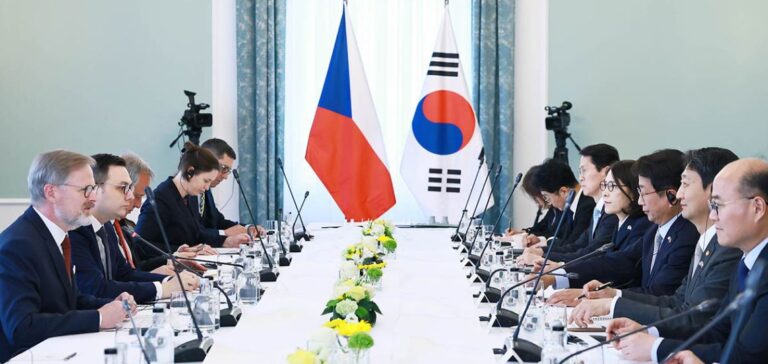The Czech Supreme Administrative Court recently validated the $18 billion contract between South Korean company Korea Hydro & Nuclear Power (KHNP) and Czech energy utility ČEZ for the construction of a strategic nuclear power plant. This ruling ends months of judicial uncertainty surrounding the energy project, which faced challenges regarding the transparency of market awarding procedures and tender processes. The judicial decision thus confirms the legal validity of the bidding process previously launched by the Czech government. KHNP, a specialized subsidiary of the South Korean state-owned energy group KEPCO, can now swiftly begin construction work.
A decisive validation for the Czech energy future
The project involves the construction of a new nuclear unit at the existing Dukovany power plant site, located in the southeastern Czech Republic. This nationally significant project represents one of the most costly and complex energy initiatives undertaken by the country in several decades. The Dukovany power plant, currently operating with four Soviet-designed reactors dating back to the 1980s, plays a crucial role in the national electricity supply. Its expansion is considered essential to ensure the country’s medium-term energy stability.
The initial legal challenge came primarily from an unsuccessful competitor in the final selection round, the American company Westinghouse Electric Company. The U.S. firm raised several complaints concerning the fairness and transparency of the public procurement process. However, the Czech Supreme Administrative Court determined that the procedures followed by ČEZ and relevant authorities fully complied with applicable national and European regulations concerning public procurement tenders. This ruling thus concludes a series of judicial actions initiated over the past several months.
Major economic impact and international perspectives
Beyond its legal implications, this contract represents a significant economic development for the Czech Republic and its international partners. According to Czech authorities, the project will generate several thousand direct and indirect jobs nationwide during the construction phase. Furthermore, the substantial investment could significantly energize the local economy, especially in industrial and technological sectors related to nuclear power. KHNP, for its part, anticipates that this contract will strengthen its strategic presence in the European market, where competition for nuclear projects is particularly intense.
Internationally, this court decision also sends a strong signal regarding the ability of non-European companies to secure substantial energy contracts on the continent. KHNP thus joins other international groups that have recently secured major nuclear projects in Europe, intensifying competition within the regional civil nuclear market. Energy sector analysts are closely monitoring future developments to determine if this decision will influence other similar contracts in Central and Eastern Europe.






















